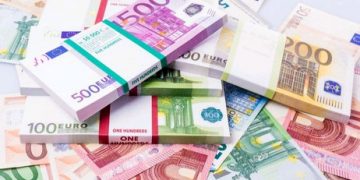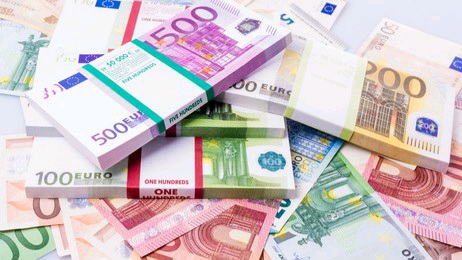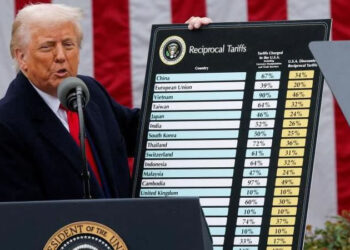By John Ikani
The euro fell below 99 cents for the first time in nearly two decades, while sterling was on the ropes on Monday as Russia’s halt on gas supply down its main pipeline to Europe sparked concerns over energy prices and growth.
The EU’s common currency was trading around 0.9911 versus the dollar by 10:00 a.m. London time (5:00 a.m. ET), having climbed off lows of $0.9881 hit earlier in the day.
Russia scrapped a Saturday deadline for flows down the Nord Stream pipeline to resume, citing an oil leak in a turbine. It coincided with the Group of Seven finance ministers announcing a price cap on Russian oil.
Nord Stream 1 was due to restart operations on Saturday morning, after a three-day shutdown for maintenance. But Gazprom dashed hopes of a resumption on Friday night, blaming a leak.
Analysts predict gas prices will soar, having fallen back from recent highs last week.
Michael Hewson of CMC Markets explains: “Russia’s actions on Friday in indefinitely closing the pipeline could see renewed upward pressure on European and UK natural gas prices when markets reopen today, after seeing big falls in prices last week as UK natural gas prices fell 39%, while European prices fell 33%.”
Yesterday the German government announced a €65 billion package to reduce consumer energy bills and support businesses.
Meanwhile, the pound was trading at 1.1498 against the dollar as the U.K. prepares to find out who its new British prime minister will be. The new premier will be forced to reckon with a growing cost-of-living crisis fueled by soaring energy bills.
Sterling fell 4.5% against the dollar in August, its worst month since Brexit, and one analyst forecast that it would “plumb new depths” due to political and economic uncertainty, potentially hitting $1.05 by the middle of next year.




































